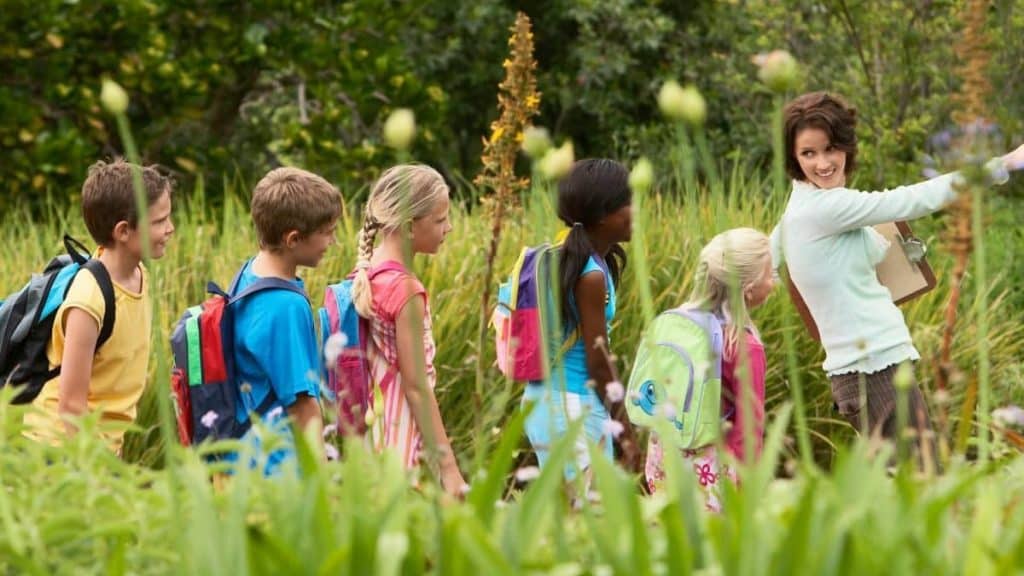A school trip is a much-anticipated period in every student’s life. As a teacher, the thought of taking your students outside of school to improve their wisdom excites you. But how can you make sure that the trip is both useful and fun? In this article, you will go through some tips on how to enjoy your educational trip.
1. Select a Destination
As you pick a place for a school trip, it is a lot like choosing a setting for a great experience. To put it another way, you should think about places that are not only entertaining but also teach children important things, such as museums, wilderness preserves, and historical sites.
Also, it would be best to ask your students and other teachers what they think. When everyone is enthusiastic about the destination, the trip will be more enjoyable for everyone involved. It is the first thing you need to do to increase the enjoyment of your school trip.
2. Identify Costs
Discovering the trip’s total cost is comparable to preparing for a particularly large gathering. As soon as you are prepared, you will want to know the whole cost of everything, including the cost of entrance, food, and lodging.
Keep in mind that having a well-defined itinerary for the vacation makes it more enjoyable for everyone. This is similar to having a road map that ensures the journey will go off without a hitch and any complications coming up.
3. Organize Fundraising Activities
Having a fundraiser not only helps kids and their families with money. As a matter of fact, it also builds community and teamwork.
That being said, start by creating fun and creative ways to raise money. A lot of people choose bake sales, car washes, and talent shows. Make sure the activities are fun for the people taking part and appealing to people who might want to help the cause.
Aside from that, make a fundraising committee with parents, teachers, and kids. This broad group can help with planning by sharing their skills and points of view. To ensure everything runs smoothly, it would be beneficial to give each person a clear job, like marketing, logistics, or finances.
4. Prepare Educational Materials and Guides
Make packets or online tools that teach students about the history, culture, or scientific importance of the place they are going. You can add maps, fun facts, and suggested reads to excite and give them a sense of where they will be going.
Other than that, make worksheets suitable for the kids’ ages and encourage them to be active during the trip. Include challenges, questions, or jobs that have to do with the destination. This will help kids learn how to think critically and observe things.
6. Transportation Arrangements
Do some study and pick a transportation company with a history of being safe and on time. Make sure they have the right licenses and insurance, and if you can, read reviews or ask other schools for suggestions. Keep in mind it doesn’t matter if the bus ride is short or long; careful planning makes sure that everyone stays safe and comfortable.
Also, try to work things out with their parents and guardians. Share transportation information ahead of time, such as when to leave and arrive, where to meet, and who to call in an emergency. This will help avoid misunderstandings and ensure the process is safe.
7. Health and Safety Protocols
During a school trip, the kids’ safety is the most important thing. To do that, you need to set up thorough health and safety rules for dealing with possible dangers and situations. This means having a first-aid kit, assigning responsible people to watch over the kids, and giving them safety talks.
Also, get medical information from each person and know about any allergies or other health issues that need to be taken into account. This will help tell workers who are with them about safety rules.
8. Add Any Final Touches to Your Itinerary
As you finish the plans for your school trip, think about adding those extra touches that will make it even more memorable. Ensure the schedule includes all the important information, like meeting places and times. Also, make sure that reservations for any extra events are still valid, and let the group know about any changes. Attention to these small but important things will help the trip go well.
9. Depart on Your Trip, and Have a Great Time
The day has arrived! Before going on your school trip, ensure everyone is ready and excited for the journey. Ensure all the important papers, like permission slips and emergency contact information, are in order. Confirm that students have packed essentials like snacks, water, and any required medications.
During the journey, encourage a positive and enthusiastic atmosphere. Use this time to encourage students to fully engage with the learning possibilities and enjoy the unique parts of the trip. Capture memories through photos and encourage reflection on the experiences.
Have a Memorable and Fun School Trip
Remember, the journey is not just about reaching a destination; it’s about the discoveries made along the way. To further enhance your school trip planning, consider exploring resources like Ed Tripper. They can be your go-to guide for tips, itineraries, and resources to ensure your school trip is memorable and aligned with educational goals.
